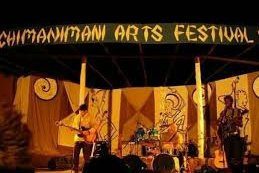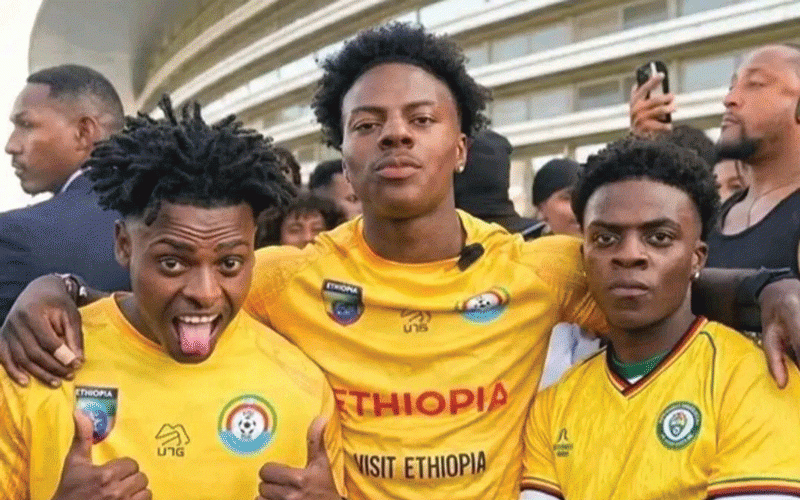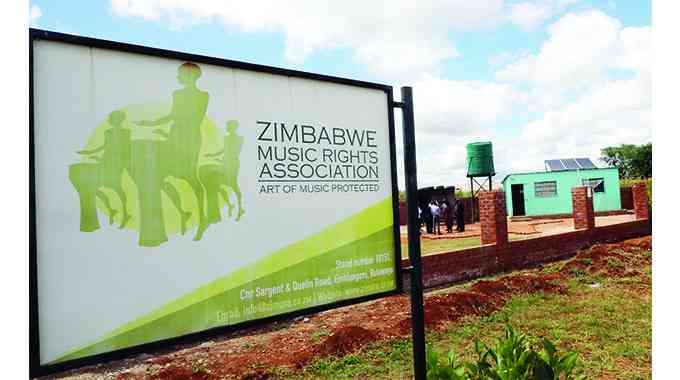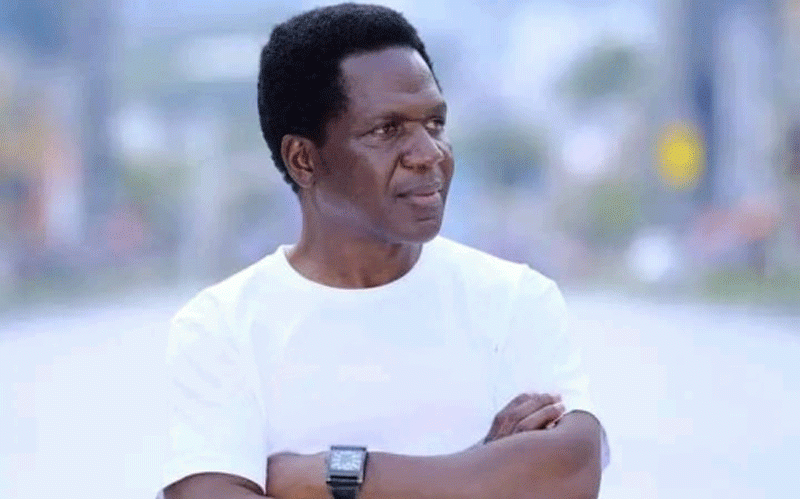
The concept of Punk Music started in the UK with the Sex Pistols whose first line-up consisted of vocalist Johnny Rotten (born John Lydon), guitarist Steve Jones, drummer Paul Cook, and bassist Glen Matlock, with Matlock replaced by Sid Vicious (born John Richie) in early 1977. Together, they became notorious as they did weird things on stage which included spitting at each other in the face while dressed in funny coloured hairstyles. Although unusual, that concept went around the world and the Sex Pistols managed to influence a lot of bands worldwide.
The idea of a Punk Rock band came to Zimbabwe around 2011 when Hector Rufaro Mugani a mbira player, farmer and former student at Zimbabwe College of Music with Tomas Brickhill son of the late Paul Brickhill and founder of Book Café decided to incorporate traditional sounds into their contemporary music styles which included the transcription of mbira music onto the electric rock guitar forming their own exclusive Mbira-Punk Band and calling themselves Chikwata 263.
Chikwata 263 are Zimbabwe’s only mbira-punk band and have appeared at festivals across the country. They are a four-piece band comprising Hector (mbira), Tomas (guitar), Ray (bass) and Blessing (drums). Together they blend the ancient mbira with modern rhythms to create an irreverent yet authentic hybrid: Mbira-Punk. The band came together in 2011 with influences ranging from Thomas Mapfumo and Burning Spear to Rancid and Bloc Party. Though their music is cloaked in the playful vernacular of songs about children slipping on banana skins, watching out for crocodiles in the river, shoes with holes in them and Shona word games, there is an incisive social commentary in their songs, which provides a sincere take on life in modern-day Zimbabwe.
The band is first and foremost a live act and need to be seen on stage to be truly appreciated. Their live performances are an energetic blend of buzz-saw guitar, machine-gun drumming, eerily melodic mbira, booming dendera basslines and howling lyrics in a mixture of Shona and English.
They played at the Chimanimani Arts Festival and the Zimbabwe Youth Festival in 2011 and have shared the stage with the likes of Oliver Mtukudzi, Sulumani Chimbetu, Andy Brown, Transit Crew, and Victor Kunonga.
This year, the band is back at the Chimanimani Arts Festival with the concept of combatting drug abuse among Zimbabwe’s youth. Hector is already at his home village in Chimanimani where he has started farming with the aim of encouraging and inspiring the youth and school-going children in that area to be more entrepreneurial and self-sufficient. The overall aim is to: establish a comprehensive and sustainable mbira music programme at seven schools in Chimanimani District.
Establish a student mbira band in each of seven Chimanimani schools, each band comprising 9 musicians: 1 hosho player, 1 ngoma player, and 7 mbira players.
Potentially include five urban schools: Chimanimani High School, Chimanimani Primary School, Ngangu Primary School, plus 1 other, and three rural schools: Nyabamba Secondary School, Roscommon Primary School, and Albany Primary School in the teaching of mbira and prevention of drug abuse.
- Kids, teens models awards on the cards
- Tendex spreads artistic wings
- Up your game, Zim young artistes urged
- Zengeza 2 High crowned music champs
Keep Reading
It is their belief that music provides a means to increase appreciation of traditional and cultural knowledge, bridging the cultural gap between traditional cultural expressions and the present day.
The project also assists in:
nSafeguarding of Intangible Cultural Heritage and the promotion of cultural continuity;
nContributing to community development by sourcing the musical instruments from local instrument makers in Chimanimani; and most important of all, the project supports the development of tourism in Chimanimani, through the marketing of the Mbira Trail (a hiking trail created by the Chimanimani Tourism Association).
Chimanimani has already established itself as a tourist attraction centre. Chimanimani’s national park offers amazing hiking, bird watching and animal spotting along with amazing waterfalls and a local eland Sanctuary.
Hector is an accomplished mbira player who wishes to impart his skills to all the young people in Chimanimani and in Zimbabwe as a whole.
Traditionally, mbira is a sacred instrument used to communicate with ancestral spirits in religious ceremonies and social gatherings. From the 1980s it became popularised by artists such as Thomas Mapfumo and Oliver ‘Tuku’ Mtukudzi who began to incorporate traditional sounds into their contemporary styles, including transcribing mbira music onto the electric guitar.
Chikwata 263 are a Zimbabwean band taking mbira music into uncharted punk territory. Band members Hector Rufaro Mugani (mbira) and Tomas Brickhill (guitar and vocals), spell out their ‘mbira punk’ sound as they talk to Al Jazeera in fresh from a tour of Cape Town in 2013 who asked them several questions about their style of music. Below, I repeat that interview:How did Chikwata 263 form?
Hector: It started at The Book Café Open Mic in Harare where we just started jamming. We did a gig with Alliance Francaise Harare before we even had a name. Then came the name – chikwata means ‘team’ in Shona, one of the three official national languages, and ‘263’ is Zimbabwe’s international dialing code. We started the punkalicous gigs and the band started happening.
Tomas: The band quickly became noticed because we had a very original sound from the start. We came together in the spirit of a band where no one individual had ultimate say over our playlist, our sound or anything, but rather each band member brought something to the table that added to the whole chikwata sound.You describe your style as ‘mbira punk’. How is that different from popular mbira music in general?
Tomas: There are contemporary mbira players like Chiwoniso, Hope Masike and Netsayi whose styles include traditional, jazz, Afro-pop and reggae. We also have a lot of different influences in the music but the defining elements of our sound are the mbira and punk rock guitar.
Hector: The mbira is being used as an instrument rather than a genre of music. We also apply distortion to the mbira to give it a rock sound.
How do people react to your music?Hector: They usually just stand in utter surprise and then go wild. We have played for elite crowds as well as rural folks and we have had an awesome response. One Italian fan had to go for knee surgery after she broke it while dancing, but she kept on dancing with a broken knee.
Tomas: We opened for a lot of Zimbabwean bands in our first year including Andy Brown, Suluman Chimbetu and Victor Kunonga and although we began some of those shows with a few bemused looks, by the end we always managed to win the audience over.What about the mbira ‘purists’ who champion the spiritual role of the instrument in more traditional contexts?
Tomas: We’ve actually had a lot of love from people we didn’t expect and last year the Mbira Society even voted us ‘Mbira Band of the Year’.
Hector: I’ve had a mixed reaction with mbira purists. Some have accepted that is the route I have decided to take with the mbira and support me, with the understanding that I have high respect for the mbira and the spiritual world. Some have not received it well. It’s like politics, some people don’t like you and some do.
What was the most memorable gig you have ever played?
Tomas: For me, the most memorable show so far has been our performance at the Zimbabwe Youth Festival last year. The crowd had never heard of us and the stage manager wanted to cut our set short before we even got on, but we played one of our best performances and the crowd went crazy.
Hector: The Afro. Rock. Reggae. gig last November where we played with Mathias Julius and Mokoomba. That is the last gig we played with the legendary Zimbabwean lead guitarist, the late Andy Brown, who was a great inspiration to the band.You recently played a gig with Mokoomba. What was it like to perform with them?
Tomas: We actually played a lot of our early shows with Mokoomba and there’s a lot of love between the two bands. I personally find their performances full of energy and fun on
stage and that’s really our attitude too.Hector: It was nice sharing the stage with them after a long time. Really amazing band! Looking forward to having another gig with them
Thanks Hector. We all look forward to hearing these fine artistes this year at the Chimanimani Arts Festival.
Feedback: [email protected]











